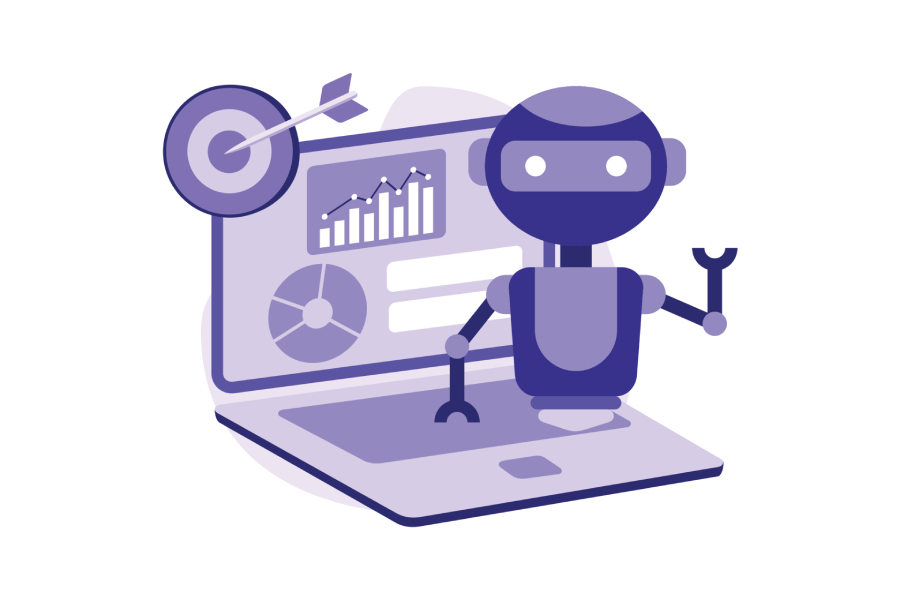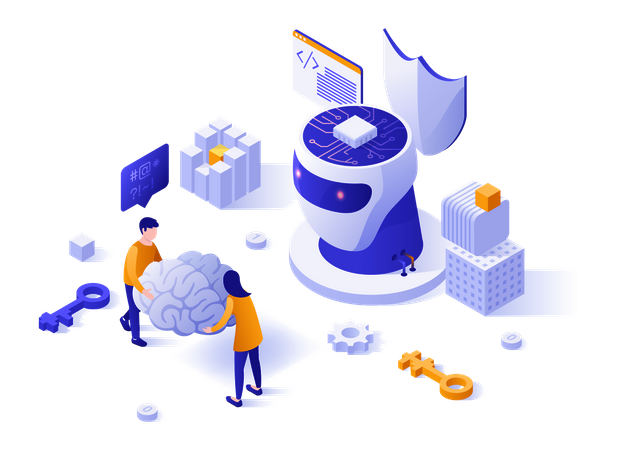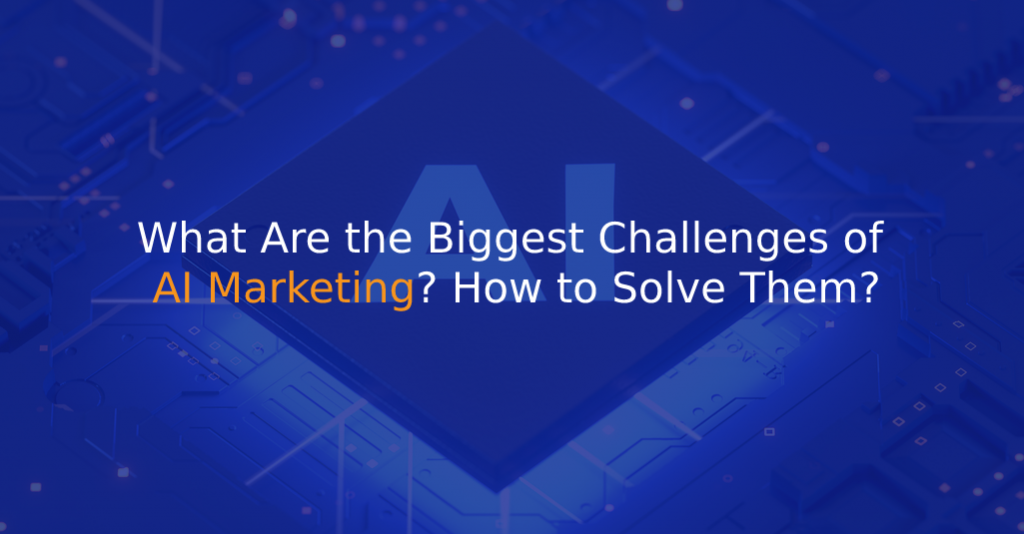Various sectors are now embracing innovative marketing methods. AI Marketing is one of these new ways, which has been employed by marketing experts for years, with statistics ranging from 29% in 2018 to a stunning 84% in 2020.
AI marketing and other intelligent tech solutions improve operations and make them more efficient, particularly in the design and execution of consumer experiences. AI-powered solutions may provide comprehensive, nuanced information.
It can also bring in a larger client base. Despite people’s fears and a lack of useful information, the many benefits of AI help enterprises.
What is AI marketing?
It is a type of marketing that leverages and collects client data. This data, in turn, assists marketers in determining how to pay for marketing, produce content, and customize the whole customer trip.
AI ushers in a new era of establishing client loyalty, mostly through digital methods, through intelligent systems. The incorporation of sophisticated algorithms in marketing software assists organizations in concluding data, hence increasing income.
Artificial Intelligence Marketing is also heavily involved. It may be used in conjunction with augmented reality as a lead-generating technique. Both augmented reality and marketing powered by artificial intelligence bring forth several advancements that will shape how consumers consume products and services in the future. Because of these two tactics, marketers now have a greater understanding of how consumers engage and create experiences.
Challenges of AI Marketing
Although artificial intelligence is becoming more powerful by the day, it still has significant limits. Some of them are motivated by ethical considerations. Others are the result of a lack of financial and human resources. Let’s take each of these issues one at a time.
Lack of trust
Despite the benefits of Artificial Intelligence marketing, firms and individuals in business remain skeptical. For one thing, if data collected from it gets into the wrong hands, it might lead to serious problems, such as the prospect of having programmed weapons.
Others are skeptical about AI because of the massive quantities of data it may collect and analyze, some of which may be extremely personal. According to popular opinion, threats of identity theft and data breaches exist.

However, it is important to understand that there are procedures in place to alleviate this lack of trust.
AI demands high investment
Effective costing is critical in any firm, and some believe that AI-powered marketing necessitates large spending. Incorporating this approach into the business may be costly, owing to the automation of activities associated with the customer journey and general improvements in user experiences.
Lack of talent
As AI marketing is difficult and involves technical expertise, finding the necessary skills and people to handle and execute it is another challenge. For AI-related tools and software, there are algorithms and computational capacity that necessitate a certain skill set.
Before using AI, firms must consider the number of staff they require and whether it is possible to outsource essential personnel or consultants.

Job losses
Another issue with AI marketing is how it affects human resources and skilled labor. Some believe that AI-based technology will ultimately displace marketers and that businesses would settle for equipment and big data to handle all of the jobs.
Some even believe that artificial intelligence would someday replace 6 out of 10 marketing analysts and professionals.
Despite this potential risk, labor remains an important aspect of marketing, particularly because human abilities are difficult to transfer to robots. Instead, marketers use AI to develop methods to make both physical labor and AI work together to attract and keep customers.
Privacy and regulations
The right respect to privacy standards is in line with the use of AI marketing. Organizations must understand the limits they must set for data about potential and present customers.
Consumers should not be concerned about infringement of their rights, since security measures have tightened over time. Offsite data storage is even prohibited by regulatory organizations.
Ethical concerns
Finally, its ethics pose a significant difficulty. Some argue that there are ethical concerns, such as invasions of privacy and improper data collection.
However, digital marketers continue to believe that AI-led marketing is critical, particularly for driving growth. They address ethical issues by ensuring that data is collected transparently, that technology is only used to benefit consumers, and that marketing operations remain within human rights and promote inclusivity.

Companies should be prepared to answer questions about AI-driven activities and provide transparent answers.
Tackling AI marketing’s biggest challenges
This type of marketing is far from ideal, but its benefits cannot be denied. It provides organizations with the entire, relevant, accurate, consistent, and timely data they require to expand their audience reach, enhance engagement, create leads, and, ultimately, increase and accelerate conversions.
Improve the data collection and handling
The first option is to consider how to optimize your data gathering, utilization, and administration when employing AI in marketing.
Some steps can assist overcome the trust difficulties regarding the use of AI for purposes other than marketing.
Maintain transparency while collecting data
More steps can be explored. For example, simply being more transparent by providing more information about data gathering and management, as well as upgrading your cybersecurity protocols, can help reduce general fear about AI. It can even address issues of privacy and ethics.
Outsourcing
Another option is to explore hiring outside help. Furthermore, it may create new career prospects, particularly for people interested in a career in Artificial Intelligence. Finally, keep yourself up to date. Every day, there are new developments in AI marketing. We’re certain that specialists are working hard to develop answers to the problems we’ve posed above. Best wishes!
Conclusion
Given the clear benefits of AI marketing, such as having comprehensive, transparent, relevant, accurate, consistent, and timely data, organizations may want to consider using it to produce leads and conversions. AI-created programs will, for the most part, give the necessary information for marketing operations to thrive.
Furthermore, it improves marketing metrics, creates real-time client life cycles and connections, and boosts campaign ROIs. A company from any industry may or may not employ artificial intelligence in its marketing efforts.
Responsible implementation is also possible if a corporation enforces it. Customers are always king, and enterprises must prioritize their protection; otherwise, AI solutions have alternatives.
AI marketing is far from flawless, but it is undeniably a promise for the future.



